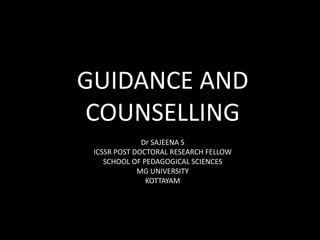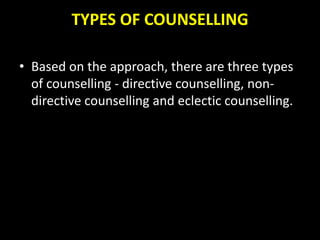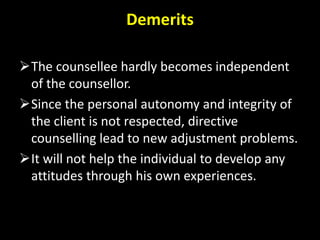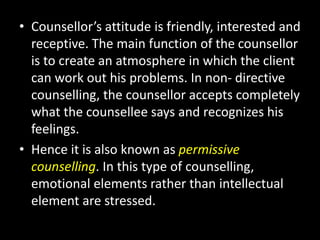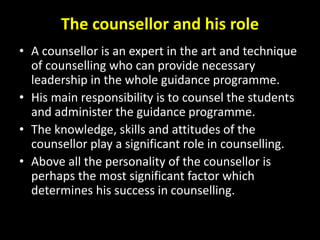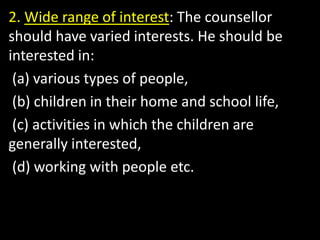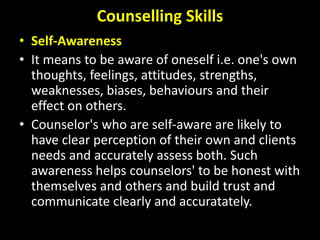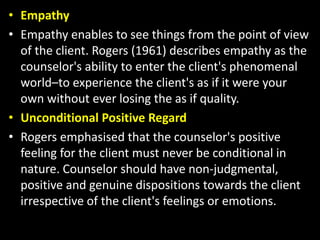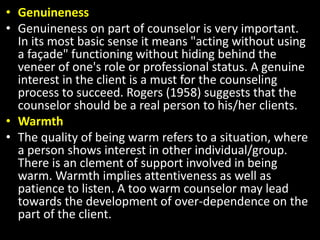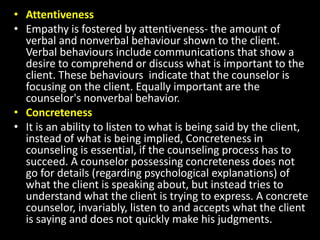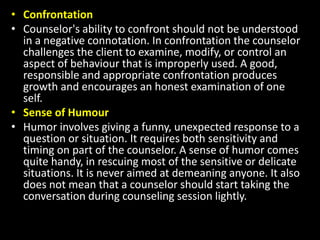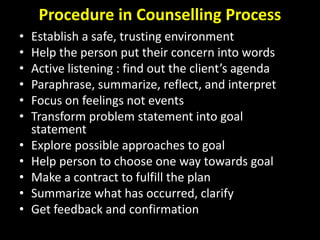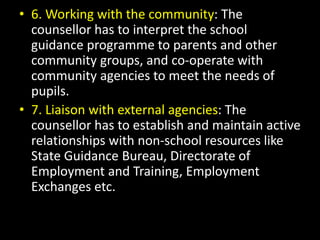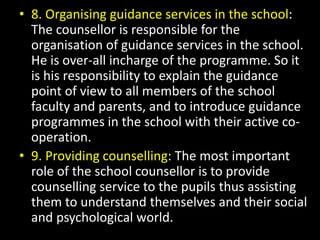This document discusses guidance and counselling. It defines counselling as a process of assistance provided by an expert to help an individual address a situation or need. The document outlines key features of counselling including that it involves a relationship of mutual respect between counsellor and client. It also discusses different types of counselling including directive, non-directive, and eclectic counselling. The roles and qualities of an effective counsellor are presented, as well as counselling skills and the counselling process.
